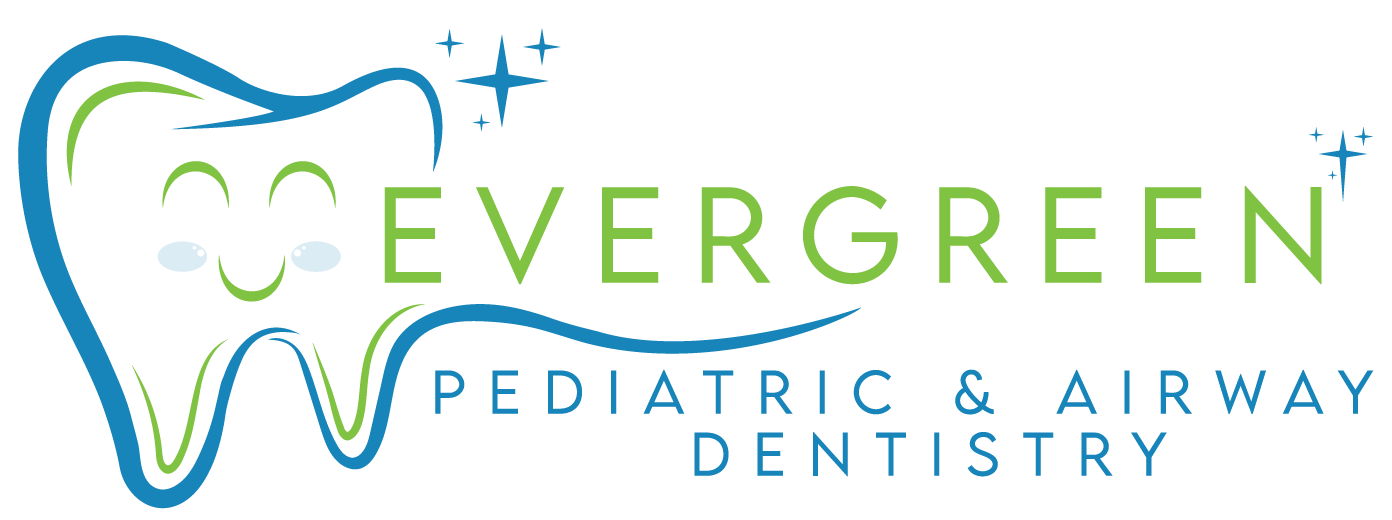The Importance of Early Dental Care for Kids: What Every Parent Should Know
Imagine this: a child’s smile lighting up a room, only to be dimmed by the discomfort of a toothache. Shockingly, dental decay is one of the most common chronic diseases among children, more prevalent than asthma and hay fever. According to the CDC, about 20% of children aged 5 to 11 years have at least one untreated decayed tooth. This statistic underscores a critical message for parents: early dental care for kids is not just important, it’s essential. The journey to a healthy smile begins sooner than you might think.
Early Dental Care and Long-term Health
Introducing dental care early in a child’s life lays the groundwork for a future of healthy smiles and overall well-being. By establishing good oral hygiene habits from the start, children can significantly reduce the risk of cavities, gum disease, and other dental problems that might arise later in life. Teaching kids to brush and floss regularly not only helps in maintaining their oral health but also promotes discipline and responsibility. These practices become second nature over time, ensuring that as they grow, they continue to prioritize their dental hygiene, which is a crucial aspect of their overall health.
Early dental visits play an essential role in monitoring a child’s oral health and guiding its development. Regular check-ups allow dental professionals to assess the growth of teeth and identify any potential issues before they become serious problems. These visits also provide an opportunity for parents and children to learn about proper brushing techniques, dietary choices that benefit oral health, and the importance of maintaining a consistent dental care routine. By making dental visits a positive and informative experience, children are likely to view them as an integral part of their health care, thus reducing anxiety and encouraging a lifetime of proactive dental health management.
The impact of early dental care extends beyond preventing immediate dental issues; it sets the stage for long-term health benefits. Good oral health is closely linked to overall health, as untreated dental problems can lead to more severe health conditions, including infections and heart disease. By investing in early dental care and maintaining a focus on oral health, parents can help ensure their children grow up with strong, healthy teeth and a reduced risk of health complications. Early intervention and consistent care not only protect children’s smiles but also contribute to their confidence and quality of life, paving the way for healthier futures.

Children Dental Health Care
Debunking Common Myths About Kids’ Dental Health
Misconceptions about children’s dental health can lead to neglecting crucial aspects of their oral care. One prevalent myth is that baby teeth are not important since they eventually fall out. However, these primary teeth play a vital role in a child’s overall development. They help in chewing food, speaking clearly, and maintaining space for the permanent teeth. Ignoring the health of baby teeth can lead to problems such as misalignment of permanent teeth and even infections that affect overall health. Therefore, it’s essential to care for baby teeth as diligently as permanent ones to ensure a healthy transition as children grow.
Another common myth is that children do not need to visit the dentist until they have a full set of teeth. In reality, early dental visits are crucial for setting the stage for long-term oral health. Dental professionals recommend that a child’s first visit should be by their first birthday or within six months after the first tooth appears. These early appointments allow dentists to monitor the development of the teeth and jaw, provide guidance on proper oral hygiene practices, and spot any potential issues early on. Establishing a routine of regular dental check-ups encourages children to view dental care as a normal part of health maintenance, reducing anxiety and fostering lifelong healthy habits.
Parents often believe that children are too young to develop serious dental issues, which is another myth that needs addressing. Despite their age, children are at risk of developing cavities and other dental problems without proper care. Factors like poor diet, inadequate brushing, and lack of flossing contribute significantly to oral health issues. Early intervention, including educating children about dental hygiene and ensuring regular dental visits, is key to preventing cavities and other complications. By debunking these myths and prioritizing their child’s dental health from an early age, parents can help their children maintain strong, healthy teeth and gums for life.
The Role of Diet in Dental Health
A well-rounded diet is fundamental to maintaining children’s dental health, as the foods and beverages they consume have a direct impact on the condition of their teeth. A balanced diet rich in essential nutrients not only supports overall health but also plays a crucial role in preventing cavities and promoting the growth of strong, resilient teeth. Foods high in sugar and acid can erode enamel and cause tooth decay, making it vital for parents to guide their children toward healthier dietary choices. By incorporating a variety of nutrient-dense foods, parents can help safeguard their children’s teeth and gums against damage.
Calcium and vitamin D are vital nutrients for dental health, contributing significantly to the strength and development of teeth. Calcium, which is abundant in dairy products like milk and cheese as well as leafy greens, is essential for building strong teeth and bones. Vitamin D, on the other hand, facilitates the effective absorption of calcium, ensuring that the body makes the most of this critical mineral. Additionally, phosphorus-rich foods such as eggs and fish are beneficial for strengthening tooth enamel. Encouraging children to consume these nutrient-rich foods can greatly enhance their dental resilience, while limiting sugary snacks and drinks can prevent plaque formation and cavities.
To promote healthy eating habits that support dental health, parents can offer a variety of fruits, vegetables, and whole grains as staples in their children’s diets. Advocating for water as the primary beverage choice over sugary drinks can also significantly reduce the risk of tooth decay. Making healthy foods appealing and engaging can encourage children to adopt these habits willingly. By nurturing a positive relationship with food and highlighting its impact on dental health, parents can guide their children toward informed food choices that benefit their overall well-being and lay the groundwork for lifelong healthy smiles.

Children Dental Service Benefits
Making Dental Care Fun for Kids
Transforming dental care into an enjoyable activity for kids is essential in fostering lifelong healthy habits. One way to make brushing teeth more appealing is by incorporating colorful, character-themed toothbrushes. These visually appealing tools can capture a child’s interest and make them excited to brush their teeth. Additionally, offering a selection of fun-flavored toothpaste can enhance the experience, making children look forward to this part of their daily routine. By turning these simple tasks into a creative and enjoyable time, parents can help their kids develop a positive association with oral hygiene.
Interactive apps and games can also play a significant role in making dental care fun. Many apps are designed to teach children the importance of brushing their teeth correctly through engaging stories and captivating visuals. These digital tools often use timers and reward systems to motivate kids to brush for the recommended two minutes, turning a potentially mundane task into an exciting challenge. By integrating technology with dental care, parents can leverage children’s interest in digital play to reinforce good oral health practices.
Creating a positive dental experience goes beyond home routines; it also includes dental visits. Parents can prepare their children for dental appointments by explaining what to expect in a fun and reassuring way. Reading books or watching videos about friendly dental visits can help alleviate any anxiety. Additionally, parents can reward their children with small incentives after a successful visit, reinforcing the idea that dental care is a rewarding experience. By making dental care engaging and enjoyable, parents can instill in their children the value of a healthy smile, setting them up for a lifetime of good oral health.
How to Choose the Right Dentist for Your Child
Choosing the right dentist for your child is a crucial step in ensuring their early dental care is positive and effective. It’s important to find a dentist who specializes in pediatric care, as they have specific training and experience in dealing with children’s unique dental needs. Pediatric dentists understand children’s growth and development stages, allowing them to provide tailored care that can prevent future dental issues. Additionally, these specialists are skilled in handling children’s behavior and anxiety, making dental visits less intimidating for young patients.
A welcoming and child-friendly environment is another key factor in selecting the right dentist for your child. The dental office should be designed to put children at ease, with features like colorful decor, toys, and interactive activities in the waiting area. Such an environment can help distract children from the fear often associated with dental visits. The staff should also be friendly and approachable, providing a warm atmosphere that encourages children to feel comfortable and safe. This kind of environment can significantly impact how children perceive dental visits, turning them into positive experiences that promote lifelong oral health habits.
Effective communication is essential when choosing a professional dentist for your child. A good pediatric dentist should be able to communicate clearly and empathetically with both children and parents. They should take the time to explain procedures in a way that children can understand, using age-appropriate language and perhaps even fun analogies or demonstrations. For parents, the dentist should offer clear guidance on maintaining oral health at home and address any concerns they might have. This open line of communication ensures parents are well-informed and children feel respected and heard, making dental care a collaborative effort that benefits the child’s overall health.

Professional Dentist
The Impact of Parental Involvement
Parental involvement plays a crucial role in shaping children’s dental habits and ensuring their long-term oral health. By actively participating in their child’s dental care routine, parents can instill positive habits that last a lifetime. Children often imitate the actions of their parents, so it’s essential for parents to set a good example when it comes to oral hygiene. Brushing and flossing together can demonstrate the importance of these practices, making them a regular part of the family’s daily routine. This involvement not only reinforces the habit but also provides an opportunity for parents to correct their child’s technique, ensuring effective cleaning.
The role of parents extends beyond daily brushing and flossing; it also includes educating children about the importance of dental health. Parents can use fun and engaging methods to teach their children why taking care of their teeth is vital. Storybooks, playful songs, or educational videos about dental care can make learning enjoyable. Parents can discuss the consequences of poor oral hygiene in an age-appropriate way, helping children understand the relationship between their choices and dental health. By making these discussions a regular part of family conversations, parents empower their children to take responsibility for their own oral hygiene.
Moreover, parents can make dental visits a positive experience by turning them into family activities. Scheduling check-ups for the whole family can normalize the experience and reduce anxiety. Encouraging healthy eating habits is another impactful way parents can support their child’s dental health. Offering a variety of nutritious foods and limiting sugary snacks can help maintain strong teeth and gums. By supervising their children during brushing, making dental visits a shared experience, and fostering healthy eating habits, parents can effectively guide their children toward a lifetime of good dental health.
Practical Tips for Daily Dental Care
Establishing a consistent oral hygiene routine is a fundamental step in ensuring your child’s dental health. Starting early with brushing twice a day helps remove plaque, prevent cavities, and promote healthy gums. For young children, using a soft-bristled toothbrush and a pea-sized amount of fluoride toothpaste is recommended. Parents should supervise and assist their children in brushing to ensure all tooth surfaces are cleaned effectively. Teaching proper brushing techniques, such as using gentle circular motions and spending at least two minutes brushing, can make a significant difference in oral hygiene. Incorporating flossing once a day helps remove food particles and plaque between teeth, areas that a toothbrush might miss.
Parental involvement is key in making dental care a part of a child’s daily routine. By actively participating in brushing and flossing sessions, parents can not only ensure these tasks are performed correctly but also model good habits. Turning these routines into engaging activities can foster a positive attitude toward dental care. Parents can play music or use a timer to make brushing a fun challenge or create a sticker reward chart to celebrate successful brushing and flossing. Reading stories or watching videos about dental care can also reinforce the importance of keeping teeth clean and healthy, making the process enjoyable rather than a chore.
Selecting the right dental products tailored to children’s needs can enhance their dental care routine. Toothbrushes with soft bristles and small heads are ideal for children, as they can comfortably reach all corners of the mouth. Opting for flavored toothpaste that appeals to children can make brushing more enjoyable. Regular dental check-ups from an early age are essential for monitoring oral health and catching any potential issues early. Dentists can provide professional cleanings, fluoride treatments, and valuable advice tailored to your child’s specific needs, ensuring a comprehensive approach to maintaining their oral health.
Conclusion
Early dental care is a cornerstone of lifelong health, setting the stage for a future filled with confident smiles. By understanding the importance of early dental visits, dispelling myths, and adopting healthy habits, parents can safeguard their children’s oral health. It’s time to take proactive steps—schedule that dental appointment, engage in fun dental activities at home, and be the role model your child needs. A healthy smile is more than just a sign of good dental care; it’s a reflection of a bright future. So let’s work together to give our children the best start in life by prioritizing their oral health. By partnering with dentists and actively participating in our children’s dental care, we can ensure they have healthy teeth and gums for years to come. Let’s make dental health a collaborative effort that benefits both parents and children alike!
Evergreen Pediatric Dentistry
https://www.google.com/maps?cid=14720788683151219551
12910 Totem Lake Blvd NE #103, Kirkland, WA 98034, United States
(425) 814-3196
https://evergreenkidsdentist.com/


